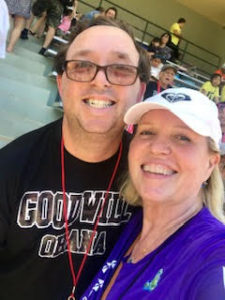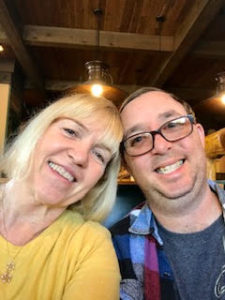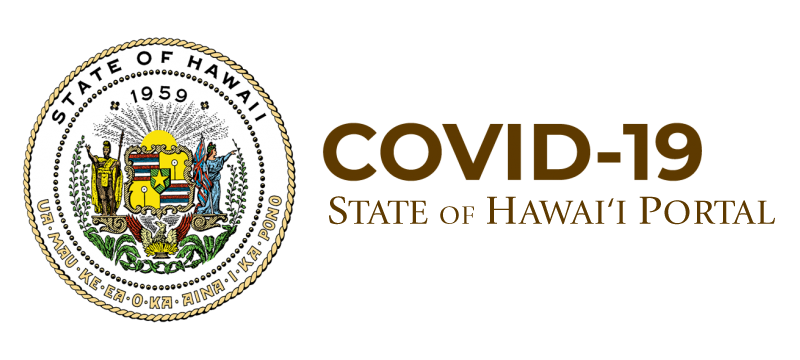Deborah Kobayakawa is well-acquainted with the special challenges the pandemic has thrust upon those with intellectual and developmental disabilities.
Her son, Ian, 31, who has autism, was living an active, independent life integrated with the community before the pandemic. That all changed with the restrictions on gathering. Ian suddenly found himself cut off from the activities he enjoyed and the people he loved being around.

An Abrupt Change
“The biggest challenge is isolation. Before the pandemic, Ian worked four days a week at Safeway for approximately 32 hours per week and he had a direct support professional assigned to support him in the workplace for 20 hours a week,” Deborah explained.
“He also attended adult day health program for two to three full days per week and enjoyed the activities and loved being with his friends and peers,” she said. “Ian participated in summer and winter sports with Special Olympics Hawaii for the past 16 years and loved attending their events and dances. Ian was able to navigate independently using TheBus and the HandiVan when needed.”
Deborah noted that last year, Ian’s group home manager locked down with Ian and two other individuals with disabilities for eight weeks straight. Deborah said she would provide meal delivery service on occasion to help brighten their day and offer some relief.

Unique Challenges
The pandemic has affected everyone, but the impact is felt more acutely by those with intellectual or developmental disabilities. They may not fully understand why they cannot participate in the activities they enjoyed before the pandemic and may not have the ability to communicate how they feel. Their increased levels of stress, anxiety and frustration may lead to negative behaviors. The progress they have made to live independently may decline, resulting in a regression of skills and more dependence on their parents or caregivers.
“It’s like taking 10 steps back,” Deborah said.
Aloha in the Midst of the Pandemic
Deborah, a former special education teacher with the Department of Education and advocate and counselor in a nonprofit organization that supports those with disabilities, appreciates the work of community providers. She moved to Oahu after 11 years in Kona to be closer to more resources. Having lived in Hawaii for nearly 35 years, she freely gives and receives aloha for families in the same situation.
“I’ve been networking a lot more with other providers, programs and agencies to make things happen. We’ve been meeting, sharing and collaborating on workshops, presentations and activities to keep families connected to information and support services,” Deborah added. “As a parent, I have felt very supported by my son’s case management with the Hawaii Department of Health’s Developmental Disabilities Division, and all of the agencies and providers that work with my son. We are learning together how to make it all work and how to come up with new ways to do what we do. I’m amazed at the dedication and commitment that so many folks have to our loved ones to ensure they have what they need.”
Innovative Service Delivery
Deborah readily gives credit to Mary Brogan, Administrator of the Developmental Disabilities Division, and her team for being nimble and flexible in offering alternative services for families during the pandemic.
“It’s been a very difficult time and our case managers have been there for a lot of folks.
Without them and their unit supervisors it would have been an unmanageable situation for many families,” she said. “I think the ability to access additional resources and services has been a huge support for individuals and families. Allowing providers to deliver services in the home helped some and being able to access virtual activities worked for others. Those folks working for our provider agency that came up with creative and innovative ways to deliver services and activities have been wonderful for many.”
By accessing available benefits, Ian received help with learning safe health practices in the community and for riding TheBus. Getting outside and walking, bus riding and even hiking help him to better cope with the pandemic. He also received telehealth arts & crafts services from The Arc in Hawaii for about a year and enjoyed this activity with his housemates.
Slow but Steady Progress
Ian has been able to resume some of the activities as programs cautiously and slowly reopen. Adult day health programs have resumed with small pods.
Ian is now participating in adult day health for a half-day a week, which allows him to see some peers again. He is also making new friends at the adult day health program. He also now works 24 hours a week with the help of a direct support professional, catches TheBus to work and rides the HandiVan home.
Supporting One Another
“We’re all over it,” said Deborah, regarding the pandemic. “But we need to be more compassionate and patient with those who have intellectual and developmental disabilities.”
“We’re all having a hard time and struggling to figure things out and that our folks want to be part of our community just as much as we do. I want people to understand that our most vulnerable populations are the ones suffering the most right now. Their voices and the voices of their caregivers and families are not being heard because they remain largely silent, unable to communicate or not knowing how. We must open our hearts and minds to embrace all individuals so that we are all working on the solution and not adding to the problem.”
For information about services available through the Hawaii Department of Health’s Developmental Disabilities Division, visit https://health.hawaii.gov/ddd/.
Denby Fawcett: Why So Few People Are Getting The New Covid Shot
Experts are worried about the lack of interest as people are still suffering from the virus and long Covid. By Denby Fawcett Original article on Civil Beat, November 7, 2023 I keep a card in my [...]
Federal Public Health Emergency (PHE) for COVID-19 ends on May 11, 2023
HONOLULU, HI –The federal Public Health Emergency (PHE) for COVID-19, declared under Section 319 of the Public Health Service Act, will expire at the end of the day on May 11, 2023. As the PHE [...]
Seniors now eligible for additional COVID-19 bivalent booster dose, COVID vaccine recommendations simplified
HONOLULU, HI – The Hawai‘i Department of Health (DOH) supports the latest recommendations announced yesterday by the Centers for Disease Control and Prevention (CDC), allowing an additional dose of the bivalent booster against the virus [...]
Hawai‘i COVID-19 hospitalizations on the rise
HONOLULU, HI – The Hawai‘i Department of Health (DOH) reports a rise in the rate of COVID-19 hospitalizations. The number of total positive COVID-19 hospitalizations has increased over the past week (3/26 – 4/4) from [...]
Wastewater Samples Show Higher COVID Concentrations & New Subvariant
The Hawai‘i State Department of Health’s most recent Wastewater Surveillance Report documents two significant developments about COVID-19 in Hawai‛i. Higher concentrations of the virus that causes COVID-19 The arrival of the XBB.1.5 subvariant Higher concentrations [...]
Bivalent boosters for keiki as young as 6 months
Updated COVID-19 bivalent boosters are now available in all counties for keiki as young as six months of age. The U.S. Food and Drug Administration (FDA) amended the emergency use authorization for the bivalent boosters [...]
